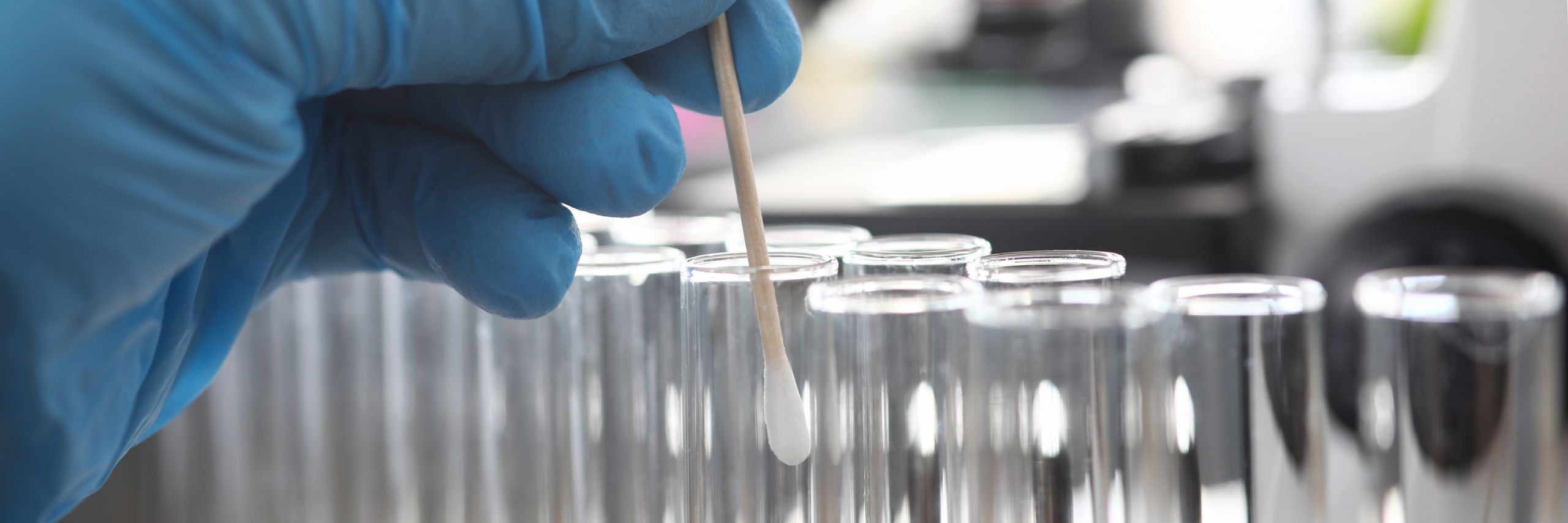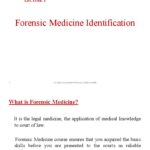Forensic science, an interdisciplinary field that bridges the chasm between scientific inquiry and legal adjudication, offers a captivating career path. However, navigating the labyrinthine steps to become a forensic scientist demands meticulous planning and unwavering dedication. This exploration demystifies the process, illuminating the pathway with clarity and precision.
I. Laying the Groundwork: The Cornerstone of Higher Education
The bedrock of a forensic science career is a robust educational foundation. While a specific “forensic science degree” is advantageous, alternative pathways exist. A bachelor’s degree in a natural science, such as chemistry, biology, or even a specialized area like molecular biology, provides a viable entry point. Consider minoring in a forensic-related discipline, such as criminal justice, to augment your understanding of the legal framework.
A. Specialized Forensic Science Programs: These programs, often replete with hands-on laboratory experiences, provide a tailored curriculum specifically designed for the forensic arena. They typically encompass coursework in forensic chemistry, forensic biology, crime scene investigation, and legal aspects of forensic science.
B. The Importance of Accreditation: When selecting a program, prioritize those accredited by the Forensic Science Education Programs Accreditation Commission (FEPAC). Accreditation ensures adherence to rigorous academic standards, enhancing your credibility and employability.
C. Cultivating Crucial Skills: Beyond the curriculum, focus on honing critical skills. Sharpen your analytical prowess, cultivate meticulous attention to detail, and master the art of clear and concise communication, both written and verbal. Statistical analysis aptitude is also increasingly crucial. Furthermore, coursework in ethics is important as your work will involve ethical and moral considerations.
II. Forging Expertise: Specialization and Advanced Studies
The field of forensic science is vast and multifaceted, encompassing a diverse array of specializations. Identifying your niche is paramount to career progression. Consider delving into areas such as:
A. Forensic DNA Analysis: Extracting, analyzing, and interpreting DNA evidence from crime scenes to identify suspects or victims. This requires mastery of molecular biology techniques, including PCR and DNA sequencing.
B. Forensic Toxicology: Identifying and quantifying drugs and poisons in biological samples. This demands expertise in analytical chemistry, particularly chromatography and mass spectrometry.
C. Forensic Chemistry: Analyzing trace evidence, such as fibers, paint, and explosives, to link suspects to crime scenes. Strong organic and inorganic chemistry knowledge is essential.
D. Digital Forensics: Recovering and analyzing digital evidence from computers, smartphones, and other electronic devices. This necessitates a deep understanding of computer hardware, software, and networking protocols.
E. Forensic Pathology: Determining the cause and manner of death by examining bodies. This requires a medical degree (MD or DO) followed by a specialized residency in forensic pathology.
F. Advanced Degrees: A Strategic Imperative: Pursuing a master’s or doctoral degree can significantly enhance your career prospects, particularly in specialized areas. Advanced studies often involve research, allowing you to contribute to the evolving body of forensic knowledge. A PhD is especially valuable for those aspiring to leadership or research-intensive roles.
III. Immersion and Application: The Crucible of Practical Experience
Academic knowledge alone is insufficient. Practical experience is the sine qua non of a successful forensic science career. Seek opportunities to gain hands-on experience through:
A. Internships: Secure internships at forensic laboratories, law enforcement agencies, or medical examiner’s offices. Internships provide invaluable exposure to real-world casework and laboratory procedures.
B. Volunteer Work: Consider volunteering your skills at relevant organizations. Even seemingly small contributions can bolster your resume and demonstrate your commitment to the field.
C. On-the-Job Training: Many forensic science positions involve extensive on-the-job training. Embrace these opportunities to learn from experienced practitioners and refine your skills.
IV. Ascertaining Proficiency: Certification and Professional Development
Certification, while not always mandatory, is often a prerequisite for career advancement. Certifications demonstrate competence and adherence to professional standards. Reputable organizations offer certifications in various forensic disciplines, such as:
A. The American Board of Criminalistics (ABC): Offers certifications in areas such as forensic biology, drug analysis, and trace evidence.
B. The American Board of Forensic Toxicology (ABFT): Provides certification for forensic toxicologists.
C. Continuous Learning: A Lifelong Commitment: Forensic science is a dynamic field, constantly evolving with new technologies and methodologies. Embrace continuous learning by attending workshops, conferences, and professional development courses. Staying abreast of the latest advancements is crucial for maintaining competence and credibility.
V. Navigating the Professional Landscape: Job Searching and Career Advancement
The job search process requires strategic planning and effective networking. Craft a compelling resume and cover letter that highlight your skills, experience, and qualifications. Network with professionals in the field by attending conferences, joining professional organizations, and utilizing online platforms. Be prepared to undergo background checks and polygraph examinations, as these are often standard requirements for forensic science positions.
Consider the long-term trajectory of your career. Seek opportunities for advancement, such as supervisory roles, research positions, or specialized casework. Continuously expand your knowledge and skills to remain competitive in the ever-evolving forensic science landscape. The journey to becoming a forensic scientist is a challenging but rewarding endeavor, demanding dedication, perseverance, and a relentless pursuit of knowledge.










Leave a Comment